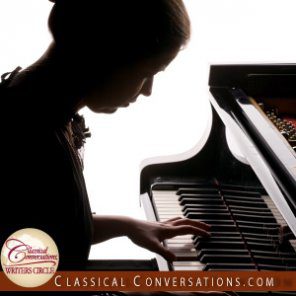As humans we crave an understanding of who we are and our purpose for living. Many of us find purpose through the approval of others or by connecting ourselves with a certain person or group of people. Ironically, we may even find purpose through the approval of no one. Arrogance has a way of cutting us off from relationships with people entirely. Pride can root itself in the heart so deeply that we refuse any kind of help or kindness from others. This “me versus the world” mentality is a highly advertised philosophy in our media today. Even still, wherever our cravings for purpose push us, we are constantly seeking to find identity in this world.
Unfortunately, too much of our time is spent seeking our identity in pointless places. Whether it is sports, money, success, or even our own sexuality, there are thousands of distractions in this world which our sinful hearts crave for no other reason than to find meaning. Our gracious God gives us countless gifts in order to help us realize our true humanity and what it means to be made in the image of God. Sadly, we we find ways to pervert those gifts and use them for our own selfish gain. I want to suggest that music, among many other examples, is a gift from God to help us realize our true identity.
Music is something that innately connects us to other people. It is designed to help us realize a bigger reality than our individual self. For centuries, musicians and artists used music as a gateway to bring people together for the purpose of glorifying God. Music was not always composed or created for the sake of the individual. Leading up to the fourteenth century, medieval arts in all forms—painting, sculpture, architecture, and music—had, for the most part, been communicated anonymously. The reason for this was that the artists, seen more as a rule, directed their own fame to what they often referred to as “the greater glory of God.” With more complex musical techniques being discovered, including the use of vernacular poetry, composers and artists began associating their names with their own creations and discoveries. The fourteenth century saw more works attributed to composers than ever before in the history of art. This has no doubt propelled the role of the individual within music and art. Of course, I am not saying it is wrong to sign and own your creations. However, it is interesting to note that in general, people prior to the fourteenth century knew that God’s glory was the purpose for their music and art. Do we treat music with this purpose?
Today, many of us are guilty of using music in ways that exalt everything but God. Through our music habits, we find ways to identify with culture, fads, and whatever else we want to be associated with. The connection between music and identity is always joined because God designed music so that humans could identify themselves with God and His body of believers. More specifically, God designed music as an expression of our identity. In one way, what we sing about is an expression or even a declaration of what we believe is meaningful. Pop music in today’s American culture declares that fame, money, women’s body parts, and “being true to yourself” (whatever that means) are the most meaningful. As Christians, what do we believe is the most meaningful? Where do we find our purpose and meaning? Should we not to be singing about these things primarily?




